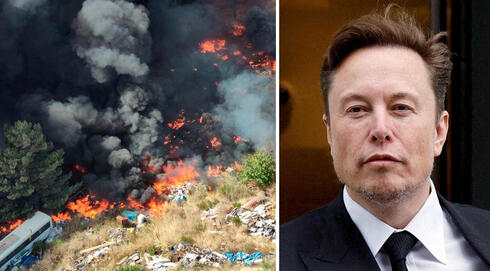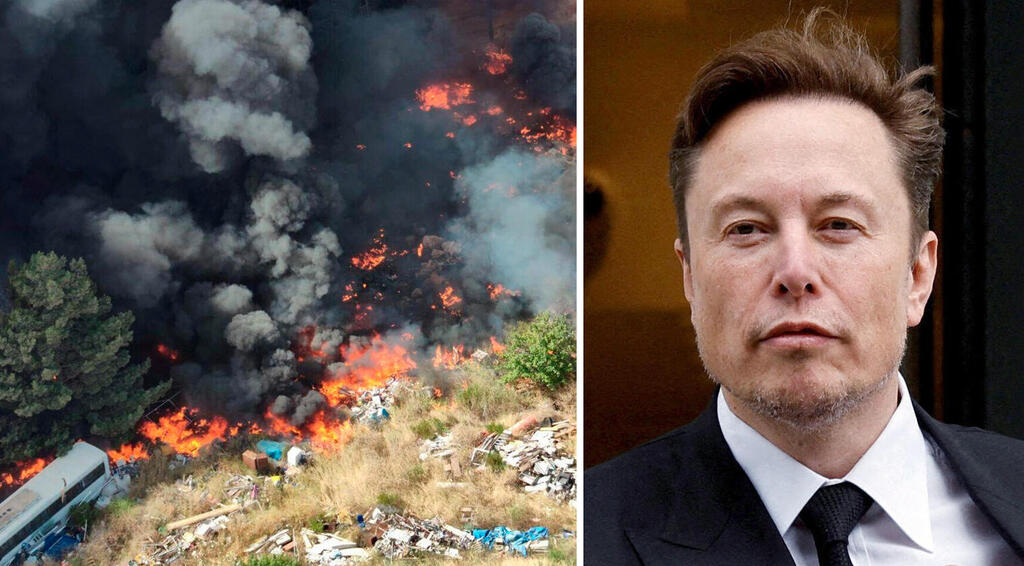
Israel to use Musk's Starlink as internet backup in case of all-out war
Ministries are preparing to utilize Starlink’s 5,000 low-orbit satellites to ensure stable data and information flow for state authorities during emergencies.
The Ministries of Finance and Communications are exploring the use of Elon Musk's satellite communications company, Starlink, to maintain internet connectivity in Israel during potential disruptions or power outages caused by an all-out war in the north. Both ministries are considering utilizing Starlink’s 5,000 low-orbit satellites to ensure stable data and information flow for state authorities during emergencies.
"The ambition is that every emergency management office in a government office will have Starlink backup to ensure functional continuity in an emergency," a source with access to the details told Calcalist.
Last February, Minister of Communications Shlomo Karhi signed an operating license for Starlink services in Israel. At the same time, Israel permitted the operation of the service in the Gaza Strip for entities providing humanitarian aid, including operating a field hospital established in Rafah by the United Arab Emirates.
Examining the reliance on Starlink services in an emergency stems from concerns about damage to the electricity network during a total war, which could also disrupt the internet network. With the signing of Starlink's operating license in Israel, the Ministry of Communications stated that the service would focus on areas close to the fighting, aiming to provide stable communication to local authorities, emergency units, and government bodies in cases of wired and cellular communication malfunctions.
According to scenarios by the National Emergency Management Authority (NEMA) and electricity company Noga, damage by Hezbollah to sensitive electricity production and transmission facilities could lead to blackouts in large areas of the country, especially in the northern region. In the event of a power outage lasting more than two hours, the relay stations of the cellular network may also collapse. The Ministry of Communications allocated approximately NIS 40 million to cellular companies to extend the redundancy of these stations in the northern region from two to three hours to approximately 12 hours.
Extending the redundancy of 80% of all relay stations nationwide requires an investment estimated at NIS 250-300 million. Hezbollah's arsenal includes suicide drones, missiles, and rockets capable of reaching any point in Israel. According to security system scenarios, Hezbollah would use them during an extensive war, targeting vital infrastructure such as electricity, transportation, and other sensitive facilities.
Security officials told Calcalist that in recent months there has been a noticeable effort in government ministries to improve their preparedness for an all-out war. This preparation includes the Ministry of Communications' efforts to improve system survivability, especially in the north, and connect receivers in remote areas to the internet.














